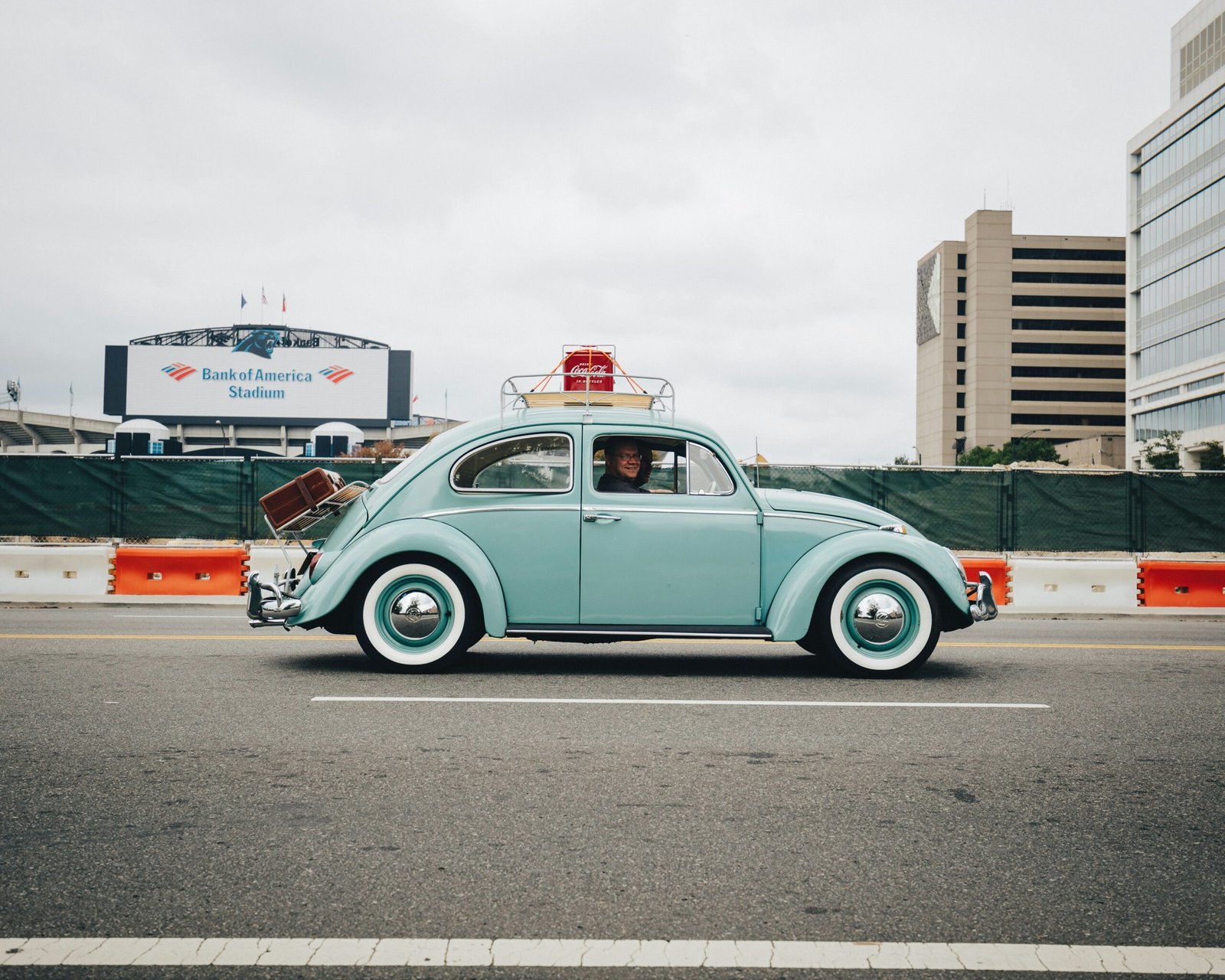Introduction to Classic Car Insurance
Classic car insurance is a specialized form of vehicle insurance designed to cater to the unique needs of classic and vintage car owners. Unlike standard car insurance, which is typically structured to cover modern vehicles used for everyday commuting, classic car insurance addresses the distinct requirements of vehicles that are often older, more valuable, and less frequently driven. The classification of a ‘classic car’ can vary, but it generally encompasses vehicles that are at least 20-25 years old, although some insurers may have different criteria.
One of the primary reasons classic car insurance is essential lies in the nature of these vehicles. Classic cars often have higher repair costs due to the scarcity of parts and the specialized labor required for restoration. This makes the financial protection provided by classic car insurance crucial for owners who may face significant expenses in the event of damage or mechanical failure. Additionally, classic car insurance policies typically offer agreed value coverage, meaning the insurer and the owner agree on the car’s value at the time the policy is written, ensuring the owner receives full compensation for the car’s worth in the event of a total loss.
Another key difference between standard car insurance and classic car insurance is the usage limitations. Classic car insurance policies often come with mileage restrictions, as these vehicles are not intended for daily use. Instead, they are usually driven only for special events, exhibitions, or occasional leisure rides. These restrictions help keep premiums lower while still providing the necessary coverage.
Ultimately, owning a classic car comes with unique risks and responsibilities. The need for specialized parts, higher repair costs, and the irreplaceable nature of these vehicles make classic car insurance not just a luxury, but a necessity. By understanding the nuances of this type of insurance, owners can better protect their cherished vehicles and ensure they remain in pristine condition for years to come.
Types of Coverage Available
When it comes to motor insurance for classic cars, the coverage options go beyond the standard policies available for everyday vehicles. One of the primary components of a classic car insurance policy is the agreed value coverage. Unlike standard car insurance, which typically pays out the depreciated market value of a vehicle in the event of a total loss, agreed value coverage ensures that the insured value, agreed upon by both the owner and the insurer, is paid out. This is particularly crucial for classic cars, whose value often appreciates over time.
Another essential aspect of classic car insurance is spare parts coverage. Given the rarity and expense of parts for classic and exclusive cars, this coverage ensures that any necessary replacements are covered, safeguarding the owner’s investment. Restoration coverage is also a significant feature, particularly for those who are in the process of restoring their vehicles. This type of coverage can include protection for the vehicle while it is being restored, as well as coverage for the expenses associated with its restoration.
Beyond these key components, additional benefits are often available under classic car insurance policies. Roadside assistance is a valuable add-on, providing peace of mind for classic car owners who may need specialized towing services or emergency repairs. Coverage for car shows and events is another unique feature, offering protection for vehicles while they are on display or being transported to and from events.
When comparing these coverages to those found in standard auto insurance policies, the distinctions are clear. Standard vehicle insurance typically does not account for the unique value and needs of classic cars. The specialized coverages offered by classic car insurance ensure that owners can enjoy their vehicles with confidence, knowing they are appropriately protected.
Factors Affecting Classic Car Insurance Rates
When it comes to obtaining motor insurance for classic cars, several factors come into play that can significantly influence premium rates. Understanding these variables can help classic car owners better navigate their insurance options and potentially find more favorable rates.
The make, model, and age of the vehicle are primary considerations. Classic cars, often regarded as valuable and rare, can have higher insurance premiums due to their higher replacement costs and the difficulty in sourcing parts. For example, insuring a well-maintained 1967 Shelby Mustang might be more expensive than insuring a more common vehicle from the same era due to its rarity and desirability.
The owner’s driving history is another crucial factor. Insurers will assess the driver’s record to determine the risk associated with providing coverage. A clean driving record with no at-fault accidents or traffic violations can lead to lower premiums, while a history of incidents may result in higher costs.
Storage conditions also play a significant role in determining classic car insurance rates. Vehicles kept in secure, climate-controlled environments are less likely to suffer damage or theft, which can lead to lower premiums. Additionally, insurers often inquire about the car’s usage. Classic cars used as daily drivers are typically more expensive to insure than those used occasionally or for special events, as frequent use increases the likelihood of accidents.
Mileage limits are another consideration. Many classic car policies offer lower rates if the vehicle is driven below a certain annual mileage threshold. This reflects the reduced risk associated with less frequent use. Similarly, the car’s condition can impact insurance rates. Well-maintained, restored vehicles may be valued higher and thus cost more to insure, but they often qualify for agreed value policies which can be beneficial in the event of a total loss.
To potentially lower insurance costs, classic car owners can take several steps. Maintaining a clean driving record, investing in proper storage solutions, and limiting the vehicle’s annual mileage can all help. Additionally, bundling classic car insurance with other policies, such as home or regular car insurance, may lead to discounts.
How to Choose the Right Classic Car Insurance Policy
When it comes to selecting the ideal motor insurance for classic cars, it’s crucial to ensure that the policy aligns with the unique needs of your exclusive vehicle. The first step in this process is to determine the type of coverage required. Comprehensive coverage is often preferable as it not only includes collision and liability but also protects against theft, vandalism, and natural disasters. Additionally, flexible terms can be particularly advantageous, allowing you to tailor the policy to suit your specific needs.
Reputation matters significantly when choosing an insurer. Opt for companies with a proven track record in providing classic car insurance. These insurers usually have a better understanding of the value and special requirements of classic vehicles, ensuring that your car is adequately protected. Seeking recommendations from fellow classic car enthusiasts or reading online reviews can provide valuable insights into the reliability and customer service of potential insurers.
Before finalizing any policy, it’s essential to ask pertinent questions to potential insurance providers. Some key queries might include:
- What is the agreed value coverage, and how is the car’s value determined?
- Are there any mileage restrictions or usage limitations?
- What type of repair options are available, and can you choose your own repair shop?
- Are spare parts and restoration costs covered?
- What discounts are available for safe driving, membership in classic car clubs, or the installation of security devices?
Reading and understanding policy details is essential. Pay close attention to the fine print, exclusions, and any conditions that might affect your coverage. It’s advisable to compare multiple quotes from different insurers to see which one offers the best coverage at a reasonable price. Don’t hesitate to ask for clarification on any terms or conditions you don’t understand.
Finally, reviews from other policyholders can provide a realistic picture of the insurer’s performance, particularly in handling claims. By conducting thorough research and considering these factors, you can confidently select the right classic car insurance policy that offers both security and peace of mind.










